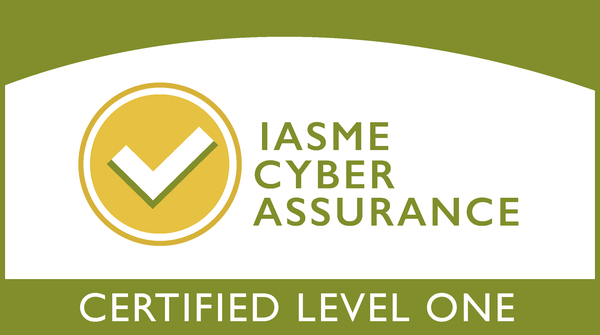An interview with Rachel Sceats, Experiential Learning at Ashridge Executive Education, by Ken Thompson from BusinessSimulations.com.
Ken: Hi Rachel. How important is Change Management these days – is it still in the top 10?
Rachel: Yes - absolutely. Each week I meet our Business Development Team to get a sense of what business leaders are worrying about and the current “hot list”. As you might imagine the list changes pretty much every week but the one thing which never seems to drop off is “dealing with change”. Here at Ashridge, we have a wide portfolio of offerings in the change management space, but we decided to see whether a change simulation might be a useful addition?
Ken: Why did you go for the COHORT Change Simulation?
Rachel: Well we have used many other change simulations, so we knew what we were looking for. We liked the feel of COHORT - it seemed to be pretty comprehensive and also flexible. Equally important, we had mixed experiences of desktop-resident simulations so we wanted to try a web-based approach to see if it simplified setup, licensing and software updates - which it definitely does! We also resonated with the underlying philosophy behind COHORT which is to always put the facilitator at the centre of things, rather than being all too "simulation-centric". We liked the focus of the simulation on the “influencing” side of change management which meant we would be able to quickly adapt it to many different change situations.
Ken: Great. You have been using COHORT for about 8 months now – how is it working out in practice?
Rachel: Very Interesting. We have now run it with many different groups we are finding that as well as the basics it also allows us to explore an number of important change topics with groups:
1. The Social aspect of change is vital
As well as addressing hierarchical authority in organizations, the simulation gives weight to social authority where people not particularly senior in the hierarchy can have huge authority due to their reputations and size of their social networks. This reflects the real-world situation we find in organisations today – it is not just the top team who are influential!
2. No (change) plan survives first contact with the enemy
We use a “progressive revelation” option within the simulation at Ashridge, where certain information does not become available until and unless the players engage with specific characters in the simulation. This means that, like the real-world, you must plan your change programme based on incomplete information which you can only improve when you go face to face with individuals.
3. Information Overload and Decision Fatigue
The simulation contains several different sections including change theory and progress reporting as well as automatic news updates where the world changes in some way. Some of this data is vital and some of it is just interesting. This allows teams to easily get distracted in the detail and lose the big picture and encountering it in a simulation helps leaders build strong “information filtering” skills.
4. One size does not fit all
I think I mentioned earlier that one of the strongest benefits of the simulation is that it can be configured and used to support both senior (highly capable) groups and junior (novice groups). For example, with one very senior group we provided limited briefing, higher difficulty level, progressive revelation and extra time pressure to ensure they were fully challenged. Such a configuration would have floored a less experienced group.
5. Doing beats reading every time
One of the things we noted, common to all forms of immersive/experiential learning, is that by turning the participants into "players" you will get a much more accurate representation of their authentic organisational behaviour. We can contrast this with, say, reviewing paper case studies where players become informed critics making perfectly rational decisions which they would probably not make “back at the ranch” under pressure.
Ken: Those are five great insights Rachel. Have you any simulation facilitation tips you can share?
Rachel: Yes. Simulations, like COHORT, are powerful tools for facilitators with nice features such as real-time leader boards and post simulation performance analysis. However, the expression “a fool with a tool is still a fool” comes to mind as the simulation will not just run itself. I would suggest some key tips for anyone planning for any group simulation session:
1. Start from the Group Learning Objectives
It is a major mistake to start from what the simulation can do. Also, as we touched on earlier, each group is different, and one size does not fit all.
2. Get the ergonomics right
If you have the wrong room layout or its too warm or too noisy or the team sizes are too big or you don’t allow enough time or the technology is too difficult this will totally undermine the whole learning experience. These things need to be got right in advance as they are very difficult to fix on the day!
3. Don’t pretend its reality!
When you explain the simulation, you need to make clear that it is only a model and as Einstein famously said, “all models are wrong, but some are useful”. It is very easy to find yourself as a facilitator in a no-win situation as you try to defend the underlying simulation algorithms. Even if you win this argument you will only have succeeded in alienating the learners.
4. Make sure you leave enough time for learning as well as playing
Where does learning happen in a simulation? In our experience, only a small fraction of learning occurs when the learners are sitting looking at a simulation screen. We contend that most learning happens when learners discuss what just happened and try and make some sense of it in terms of their mental models. A useful rule of thumb is to build in as much time for group reflection as you allow for the groups to play the simulation.
5. Think about Team Dynamics and Leadership Styles
Ken, you describe these simulations as an “observatories of team human behaviour.” A competent facilitator will see so much behaviour happening during the simulation such as unhelpful team behaviour or abrasive individual leadership styles. The trick is not to be overwhelmed by this but to decide, in advance what you, as facilitator, will focus on and feedback to the learners to help them achieve their learning goals.
Ken: Thanks Rachel – very practical tips. So it sounds like the simulation has been a good decision?
Rachel: Yes. We have found the change simulation immensely useful for groups of all seniorities in helping them develop practical change management and influencing skills experientially in an engaging and satisfying environment. We also recognise that even with a great simulation it just won’t deliver for the learners unless you have a good facilitator, who has taken the time to do their homework on the group and to plan and execute the simulation accordingly.
For more information on Ashridge Executive Education



